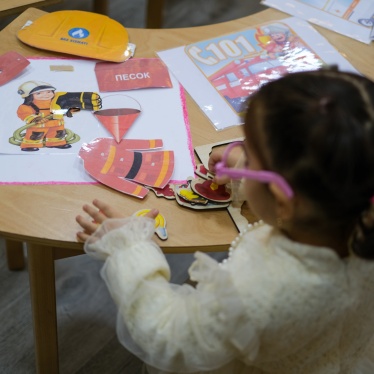World Children’s Day is celebrated annually on 20 November. The date is auspicious for children’s rights as it coincides with the date on which the United Nations adopted both the Declaration on the Rights of the Child in 1959 and the Convention on the Rights of the Child in 1989.
Both the Declaration and the Convention recognize that all children should be entitled to free elementary or primary education. But on World Children’s Day in 2024, everyone should recognize that a free primary education is no longer sufficient to prepare children to thrive in today’s world—it’s time to update international law to guarantee free public education from pre-primary through secondary education for all children.
Progress is under way. In July 2024, the UN’s pre-eminent human rights body, the Human Rights Council, decided to draft an update—known as an “optional protocol”—to the Convention on the Rights of the Child. This new treaty would be narrowly focused on upgrading international human rights law to recognize that all children have a right to early childhood care and education, to free public pre-primary education (beginning with at least one year), and to free public secondary education.
The initiative has been led by Luxembourg, the Dominican Republic, and Sierra Leone, and was supported by 46 co-sponsors from across all the world’s regions.[1] This is a significant step forward, but the road ahead is still long. For the negotiations to succeed when they begin in September 2025, many more countries will need to emerge as strong and vocal supporters.
Teachers have a unique expertise and perspective on the value of early childhood education and secondary education, giving teachers and their unions an indispensable role in convincing more governments to come on board. At its recent World Congress, Education International members pointed out that early childhood education is not yet considered a universal right in several countries, yet asserted that it “is an intrinsic part of the education system.” The Congress stated that “the right to learning begins at birth” and recognized that future progress on early childhood education requires support and new organizational initiatives from Education International.
The world has made remarkable progress since World Children’s Day was first established in 1954, when barely half of the world’s children were enrolled in primary school. Today, an estimated 88 percent of children worldwide complete primary school. Yet secondary completion rates lag behind, with only 59 percent of children globally completing secondary school. At the pre-primary level, nearly half of all children miss out.
The disparities between high-income and low-income countries are even more stark. In low-income countries, only one in five young children attend pre-primary education programs. In high-income countries, children are more than twice as likely to attend secondary school as those in low-income countries.
The cost of education remains a significant barrier for millions of children around the world, particularly at the pre-primary and secondary levels, where costs drive inequality in access.
Countries that remove school fees can experience substantial increases in enrollment and completion rates. For example, in 2008, Ghana became the first country in Sub-Saharan Africa to expand free education to the kindergarten years, guaranteeing two years of free and compulsory pre-primary education. Then in 2017, Ghana committed to full free secondary education. The results of this steady expansion of free education have been astounding. According to the latest statistics, Ghana now has the third-highest enrolment rate in Sub-Saharan Africa in both pre-primary and secondary school. Millions of children’s lives have been improved through increased knowledge, skills, and opportunities.
Emulating such progress globally will not be easy. For example, the United Nations Education Organisation (UNESCO) estimates that six million more pre-primary educators are needed to achieve one year of universal free pre-primary education by 2030.
But children’s access to pre-primary and secondary education should not be determined by their parents’ ability or willingness to pay. Teachers’ unions—whose members are on the front lines of delivering education—are in a unique position to advocate for this global change by encouraging their governments to support the optional protocol when negotiations begin next year.
Free public education from early childhood through secondary needs to be a right for every child, and teachers’ unions’ support is key to making that happen.
[1] The co-sponsors of the UN Human Rights Council resolution were: Albania, Armenia, Bahamas, Bosnia and Herzegovina, Botswana, Brazil, Bulgaria, Burundi, Chile, Colombia, Costa Rica, Croatia, Cyprus, Czechia, Dominican Republic, Ecuador, Finland, France, Gambia, Georgia, Germany, Ghana, Honduras, Hungary, Italy, Kazakhstan, Kyrgyzstan, Lithuania, Luxembourg, Malawi, Malta, Marshall Islands, Micronesia, Moldova, Monaco, Nauru, Panama, Paraguay, Peru, Philippines, Romania, San Marino, Serbia, Sierra Leone, Slovakia, Spain, Ukraine, Uruguay, and Uzbekistan.









